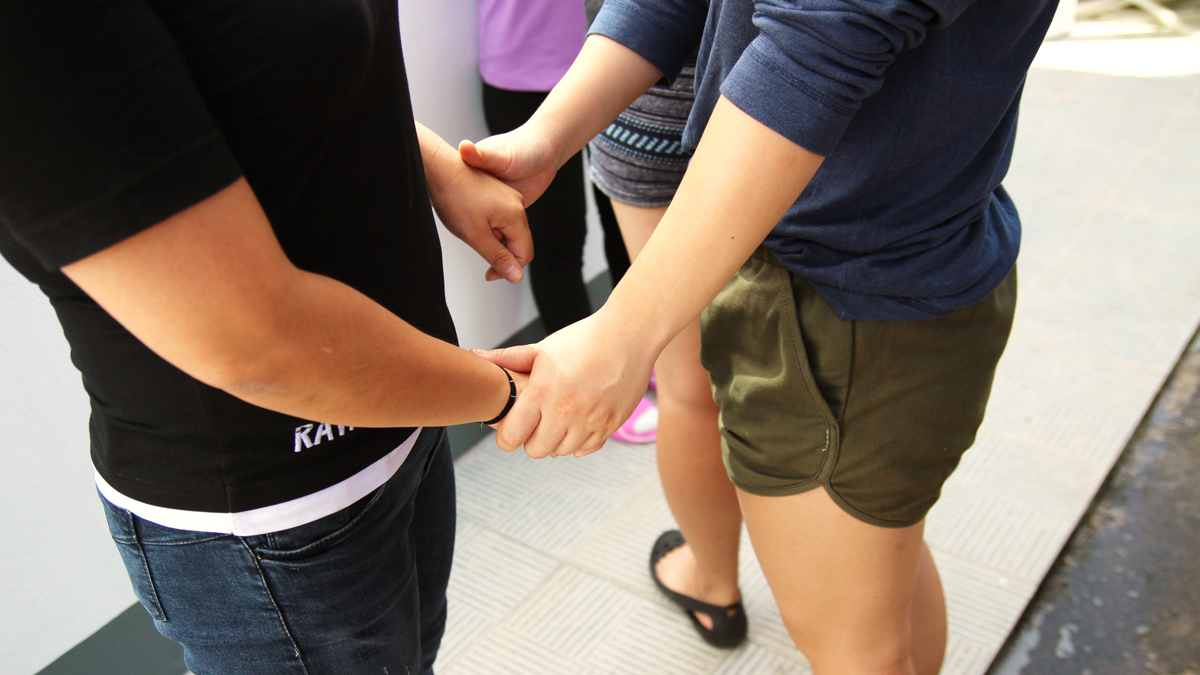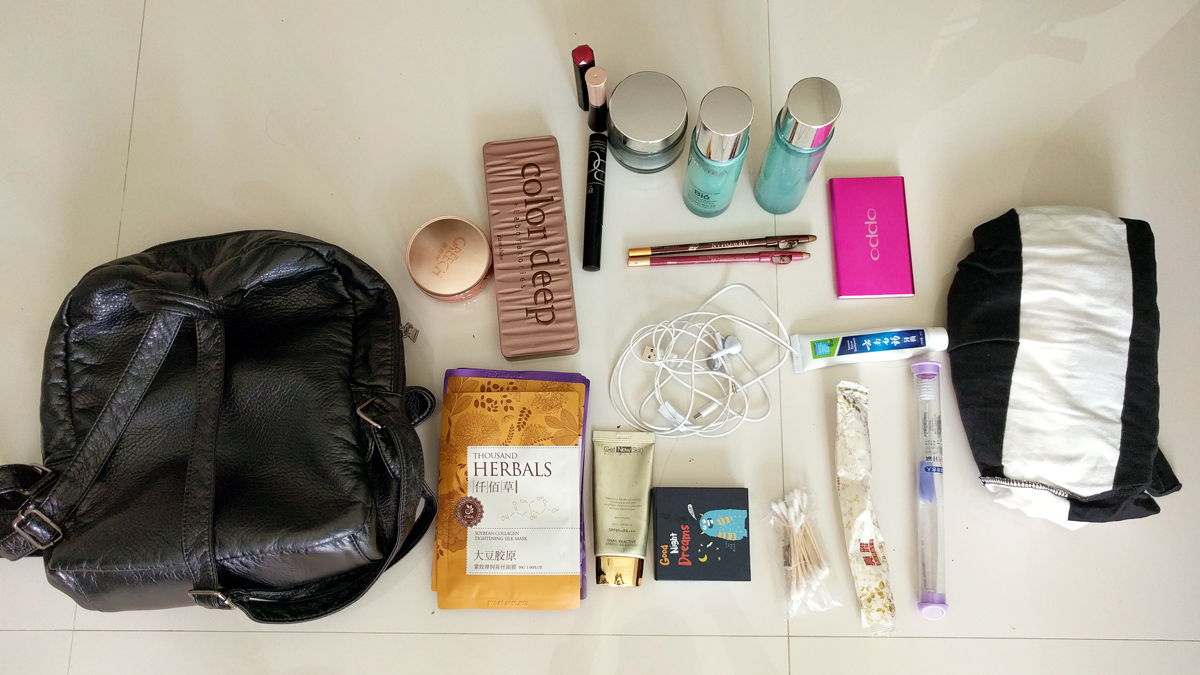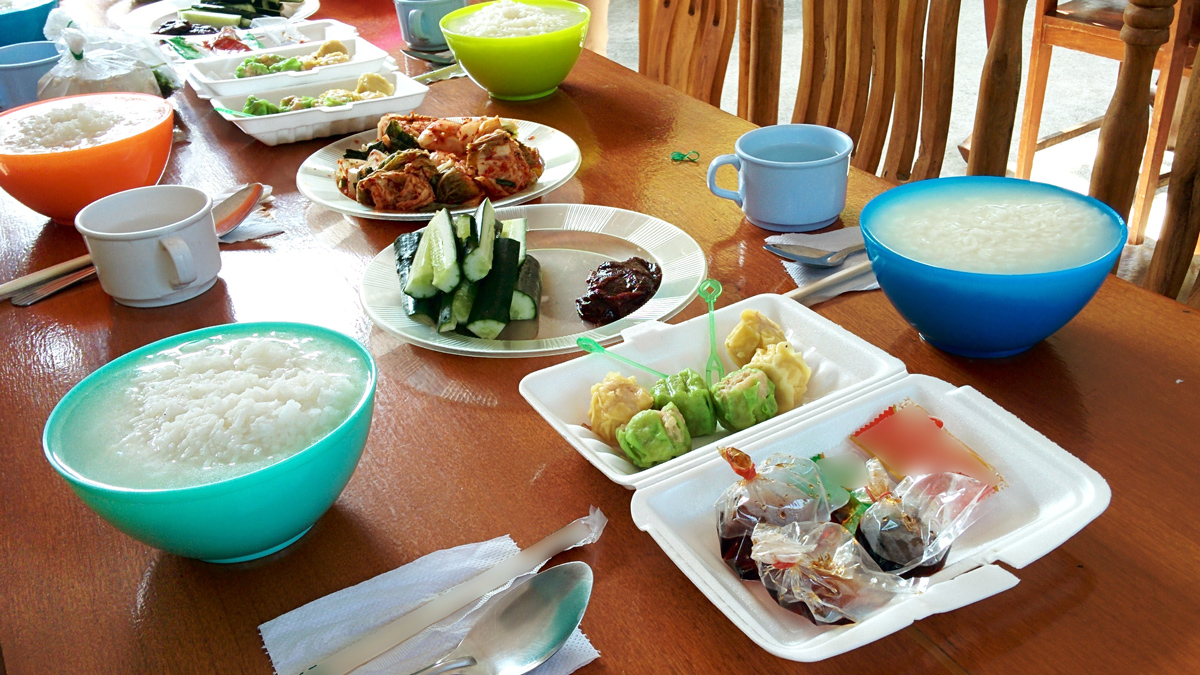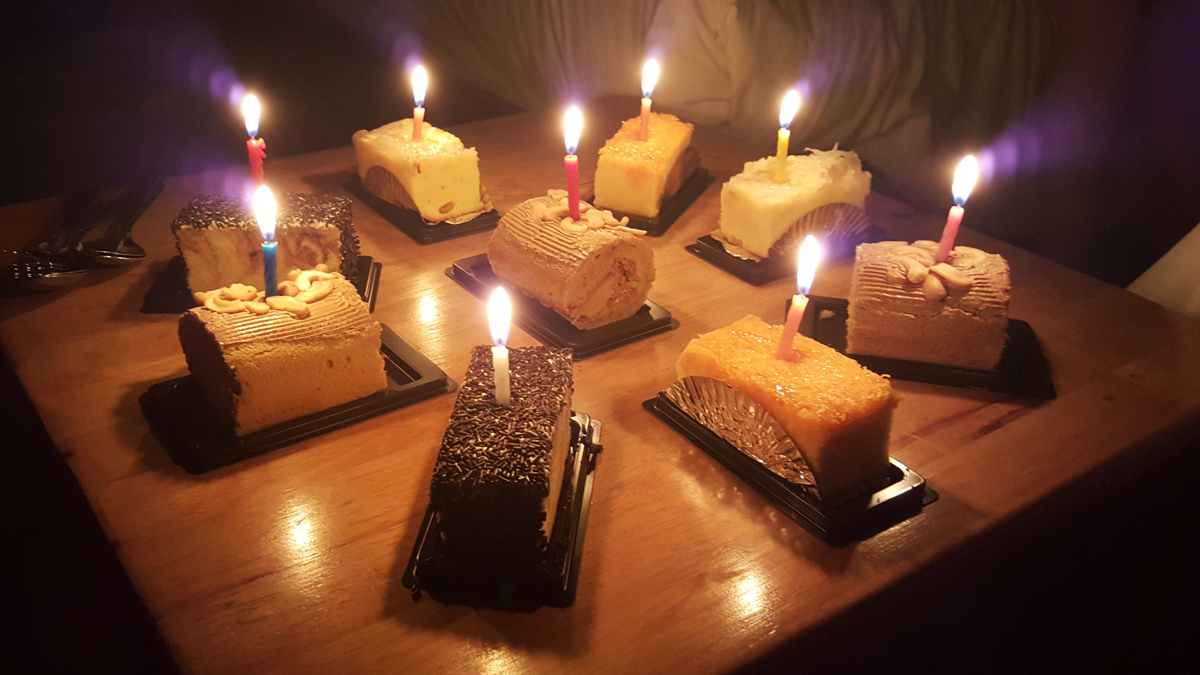Women in North Korea: At the Forefront of Social and Political Change
By Lindsey Miller
Lindsey Miller is a musical director, award-winning composer, author, and photographer originally from Glasgow, Scotland. From 2017-2019, she lived in Pyongyang, North Korea, while accompanying her husband on a diplomatic posting. For Women’s History Month, she shares a rare glimpse into the experiences of North Korean women, who are finding ways to live life on their own terms despite the circumstances.

Her name is Min Jeong*.
She’s bright, funny and has a dry and cutting sense of humour that rivals that of any professional stand-up comedian. The kind that makes you worry for the heckler in the front row.
‘Why do you keep singing? You’re terrible at singing!’ she says with a straight face to the regular punters at The Beer House, a bar in Pyongyang, before taking their glass and kindly refilling it. ‘And don’t wear those shoes, they’re ugly.’ The other punters burst out laughing while Min Jeong allows a slight silly smile to make its way across the corner of her mouth. That’s the thing about Min Jeong, she has a magnetic and honest energy about her. It was refreshing in a place where simple honesty and truthfulness felt so packed down.
Min Jeong and I spent a fair bit of time together over the two years I lived in Pyongyang. I would go to the bar mainly to just talk to her and spend time with her. She was interesting. She loved hair accessories and jewellery – an increasingly common way for North Korean women to explore self-expression. I’d show her photographs of me and tell her about my different outfits while she’d rate them. I didn’t fare very well in her opinion. I often gave her my wedding or engagement ring to try on and she’d pose with them, comparing them to other things she’d seen foreigners wear. She’d tell me about the cosmetics that she liked to wear and make herself.

One of her favourite things was a face mask which I remember involving eggs. I never tried it but she swore by it, telling me how important it was to look after my skin and reminding me that there was nothing more important than my health. Min Jeong was very bright and regularly bounced between speaking in Korean, fluent English and often Mandarin. She loved animals and we spent a lot of time looking at photographs of dogs on our phones.
Min Jeong was in her early thirties and unmarried. She’d twirl her half-tied-back beautiful shiny black hair in her fingers while telling me about how much her parents were desperate for her to ‘find a boy’. She wasn’t interested and she didn’t have much time given that she only had one day ‘off’ a week which would have been taken up in part by state-enforced self-criticism sessions among other things. Having gone on many dates, the outcomes of which she summarised with a simple wrinkled nose, she seemed to be quite content being single. It was an attitude which I was surprised to learn was shared by a couple of Pyongyang female urban elite whom I met; women who spoke openly about their lack of desire to have children, who wanted to pursue a career. This directly contradicted my understanding of North Korean women’s experiences.
But I forgot that the experience of women is diverse and North Korea is no exception.

It’s very easy to think that North Korea isn’t changing but that is not the case. To say that there have been no social changes in the country would be insulting to the creativity, tenacity and drive of the North Korean people, particularly women who continue to be a major driving force of change. Driven by necessity following the devastating famine in the 90s, ordinary women had to become more economically independent in order to survive. While North Korean men were chained to jobs in faceless party offices, women had the time to create their own economic opportunities which could feed their families and keep them alive. Even now, in spite of living in a country gripped by widespread and pervasive human rights abuses including the most extreme forms of sexual and gender-based violence, women are often the breadwinners, women are the ones driving the private markets, women are the ones winning back more agency over their own lives and futures.
I only had to go to Tongil Market to see it for myself. Every vendor standing behind every one of the stalls laid out in long rows across the indoor market hall was a woman. Every staff member taking payments from the vendors for selling in the venue was a woman. The people counting the money in the cash exchange office were women. The people unloading sacks of vegetables and meat were women. Most of the customers were women.
Through having no choice but to fight to survive, North Korean women have driven changes that few could have predicted would last.

I sit at the bar and Min Jeong passes me a cup of black tea. She starts to scroll through her phone and goes back into her own world. I think about what is going through her mind and all the things she is experiencing but cannot talk about. I think about the millions of other North Korean women with names, voices and stories to tell; who we, on the outside of North Korea, will never get to meet. I think about the world who will never get to meet this generous, kind, extraordinary woman in front of me - my friend.
Min Jeong lifts her head and looks at me,
‘You really shouldn’t wear those shoes, Lindsey. They’re awful.’ She waits a moment and that same slight silly smile starts to creep across the corner of her mouth. ‘I’m kidding. They’re only a little better than yesterday’s.’

Lindsey Miller shares more extraordinary photos and stories from North Korea in her debut book, “North Korea: Like Nowhere Else," a testament to the hidden humanity and dynamism of the people. She also joined LiNK for a virtual Q&A in 2021 and continues to be a friend and advocate for this issue!
You can stand with the North Korean people as they strive towards freedom and transform their country.
Sign the Allies pledge today!
*Name has been changed to protect the privacy and safety of the individual
Women’s History Month: Honoring the Bravery of North Korean Women
By: Jennifer Kim
Jennifer* is Liberty in North Korea’s Field Manager. Over the years, she’s carefully stewarded our secret rescue routes and helped countless North Korean refugees reach safety and freedom.
Approximately 70% of North Korean defectors are women. Throughout their journey, they face unimaginable challenges, including human trafficking, confinement, and sexual violence.
For Women’s History Month this year, we asked Jennifer to share her experiences supporting North Korean women who have made the brave decision to escape, and bring light to the stories of real people behind the numbers and statistics.

A Transformative First Mission
When I first began this line of work, I was filled with both excitement and anxiety. “Will I be able to connect well with these people?” “Will the field be too dangerous?” Even in my position as a staff member, there were times when the situations we encountered felt riskier because I was a woman.
On my first mission, the group we brought to safety were all women. From their small requests, like asking for sanitary pads, to moments where they cautiously shared their harrowing experiences of human trafficking in China, I found that we could connect on a deeper level because I was also a woman. I realized my role wasn’t just to be a staff member, but to stand by these people as they needed me, as a fellow woman. From then on, the fear I had initially felt about this work transformed into conviction.
North Korean Women At the Forefront of Resistance and Survival
After meeting many North Korean women defectors, I’ve come to learn that there are unique challenges and experiences that only they face. Women in North Korea are not as restricted to job assignments as men, so they’re the ones actively engaged in informal economic activities. They’re running their own black-market businesses and trading smuggled goods, shifting economic power from the regime into the hands of the ordinary people.
Women also make up the majority of North Korean defectors at over 70%. In freedom, they’re leading advocacy efforts and raising awareness for this issue.
I've come to think that perhaps women in North Korean society were the first and most desperate to stand up in resistance.

At the same time, the reality is that women are more vulnerable to gender violence and crime. The moment they cross the North Korean border and set foot on Chinese soil, their precarious legal status and the fact that they are women become risk factors that can lead to human trafficking, sexual exploitation, and forced prostitution. If these dangerous situations lead to pregnancy and childbirth, women often remain in China for years, even decades, weighed down by the conflicting emotions of their longing for freedom and their maternal instincts.
All of the women I met during my first rescue mission were survivors of being trafficked into forced marriages. While there are some cases where these women meet kind families and live in a relatively less dangerous environment, most have to endure difficult lives. One woman who we rescued in 2024 said that in the early stages of her life in China, she was confined and tied up in a single room by the man who bought her. Others had to do forced labor in one of China’s many factories.
Not a News Story, But a Person’s Story
About ten years ago, I watched a video of a woman my age testifying about the hardships and sexual violence she experienced during her defection from North Korea. As a South Korean, I couldn't believe that such things were happening just across the border. Shocked and ashamed of my indifference, I cried for a long time, then resolved to do something.
North Korea used to be something I only saw and heard about through a TV screen. Now those distant news stories have become the personal experiences of the North Korean mothers and friends I’ve met in the field.
At first, I simply wanted to help as best I could. But as time went on and I met more North Koreans, my perspective gradually changed. Now, I feel like I'm not so much ‘helping’ as I am meeting incredible superwomen who have overcome tremendous adversity.
My role is to constantly remind them of their resilience and potential, so they don't forget it themselves.

“This is My First Time Being Treated Like a Queen”
After a successful mission, our team ensures our newly arrived North Korean friends have a proper meal, get some rest, and receive basic necessities. On one occasion, one woman told me, “This is the first time in my life that I have been treated like a queen.”
She had just reached freedom after ten years in a forced marriage to a Chinese man. Her words resonated with me deeply. I realized once again that our work isn't simply about helping people achieve physical freedom; it's about restoring a person's forgotten dignity.
That woman has since resettled in South Korea and runs a small shop. She’s continued to stay in contact with LiNK, sharing updates about her life. One day, she shyly announced her marriage. She’s starting a new chapter with a person she chose and wanted.

Walking Together In Solidarity
Through the friendships I’ve made and stories I’ve witnessed in the field, my connection to this issue has deepened over time. These women aren’t just “nameless” North Koreans, but people like us, living their daily lives; someone’s daughter, sister, or mother. I didn’t set out to do this work for over a decade. But day by day, hearing each story, meeting each person, and holding their hands has naturally led me down this path.
Listen to their stories, and I believe that you too will encounter a heart for the North Korean people.
– Jennifer Kim, LiNK Field Manager
*Jennifer is a pseudonym used to protect our field manager’s identity and avoid compromising this work.

Help North Koreans Win Their Freedom
From inside the country to on the global stage, North Korean women are driving change on this issue. Driven by necessity, desire to care for their loved ones, and aspirations to forge their own path in this world, their pursuit of freedom is both intentional and instinctive.
Liberty in North Korea doesn't just extend a helping hand to North Korean refugees—we’re cultivating the next generation of North Korean leaders, entrepreneurs, and advocates, and doing this work alongside them.
Become a monthly donor today at $20 per month to help more North Koreans reach safety and gain full authorship of their lives in freedom.




